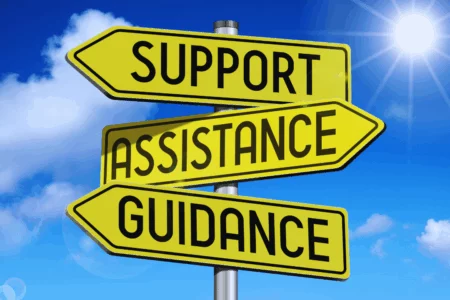There’s not a lot of companies in the latter group, but they tend to make an out-sized impression in the industry and on your prospective clients.
How to show that you’re a credible advisor
If you’re here, then of course you want to be in that first group. There are a few key steps you need to take to make sure your peers, your clients and HMRC that you are a responsible and ethical advisor.
First and foremost is to make sure you’re keeping up to date with changes to the scheme legislation and guidance. This isn’t to say that you must be familiar with every nook and cranny of the legislation, but you should know where to look when you don’t know something. Blindly pushing ahead with a claim when you’re not sure how it relates to current guidance is a recipe for disaster.
Your first point of reference is, of course, the legislation itself and HMRC’s own guidance. But a credible advisor will also be in touch with peers to discuss tricky nuances, staying abreast of news like tribunal outcomes, and actively involved in professional bodies like The R&D Community. LinkedIn is a great place to publicly share what you’re reading and engage others in conversation.
Second, it’s also important to remember that the strength of a claim lies in the case built by the supporting evidence. As a credible advisor, you can show that you’ll be preparing detailed reports in collaboration with clients to back up their claims.
And in fact, another core quality of a credible advisor is a willingness to involve your clients in the claims process. Clients need to know that a claim is their responsibility and that HMRC will be looking at them in the event of an enquiry. Making this clear in your marketing and conversations with prospective clients is a hallmark of a responsible, credible advisor.
The benefits of being a credible R&D advisor
It can feel frustrating, however, when you know others are out there making a killing touting old figures about how much a company can claim, how easy and guaranteed everything is, and charging a premium while they’re at it. So aside from the obvious desire to be a decent, honest person, is it really worth your while to make the effort?
Even independent of ethics, being credible and responsible fosters a sustainable business. Clients with a strong case for a claim are likely to seek out advisors that they know will treat them properly, and support them through all the challenges of preparing and defending a claim. Shoddy practice attracts ill-advised claims, and responsible practice attracts strong claims.
R&D tax relief isn’t exempt from the power of word-of-mouth. You don’t need to keep your ears open for long to hear repeat mentions of bad actors. The same goes for responsible, knowledgeable advisors. Word gets around, and its within your power to influence what people are saying.
On a larger scale, advisors who are respected for their expertise may be invited to speak at conferences, participate in industry panels, or publish thought leadership articles, elevating their visibility and influence. These opportunities not only enhance professional development but also facilitate knowledge sharing and collaboration with peers, ultimately benefiting the entire R&D tax advisory community.
You don’t need to rely on others spreading the word about you though. We’ve been vocal about how R&D services can market themselves in an effective and responsible manner. Accurately portraying the scheme and its demands, and steering away from phrases like “HMRC approved methodology” or “100% success rate”, is a reliable way to paint yourself in a good light.
We’ve worked hard with our members to pin down the core qualities of effective, ethical marketing practices and define them as objectively as possible. This research informed the creation of our Good Practice Marketing Standard. It’s designed to help R&D tax relief providers identify and replace problematic marketing messages, and it lays out what a responsible approach to marketing an R&D service looks like.
More ways to showcase your credibility
Since finalising the Standard, we’ve been assisting our members by independently assessing their websites for problematic messages. We’re keen to recognise those that meet the Standard, as it shows dedication to credibility and ethics. If you look at our Members Directory, you’ll notice that those who have completed the assessment are highlighted with a badge:
If you’d like to assess your own website against our standards, you can download and use our free Good Marketing Checklist. You can use it to help you find and replace problematic messages with better ones which showcase your credibility and attract the right kind of attention from clients, peers and even HMRC themselves






